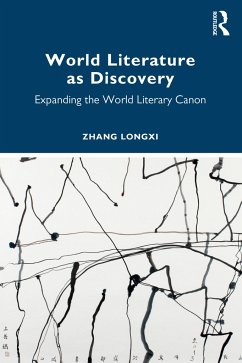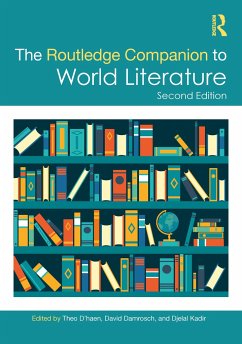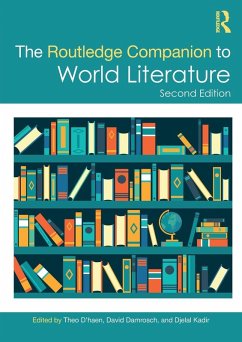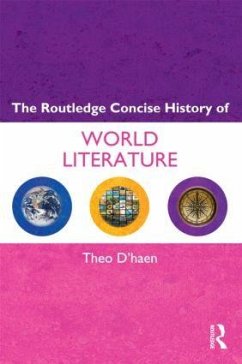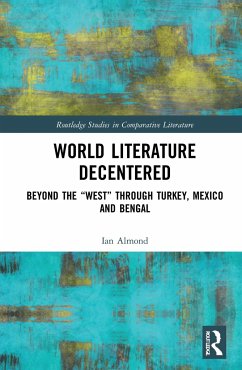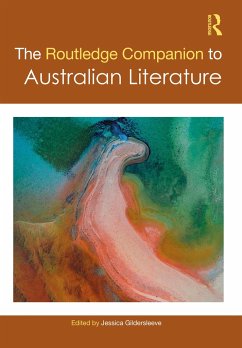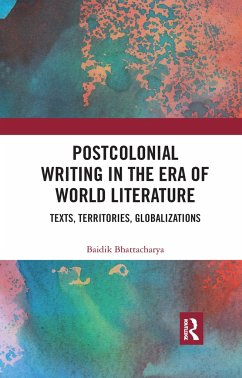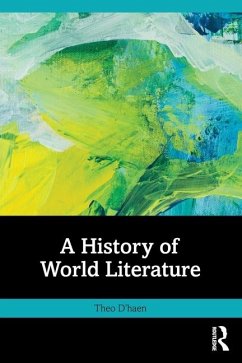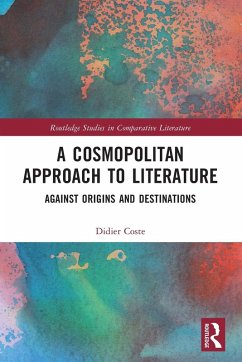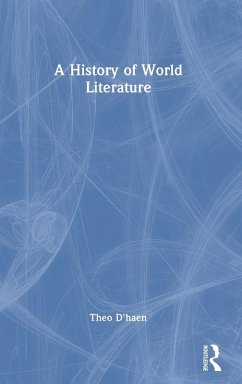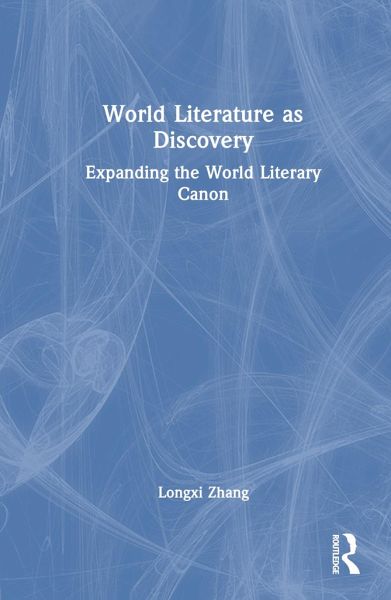
World Literature as Discovery
Expanding the World Literary Canon
Versandkostenfrei!
Versandfertig in 6-10 Tagen
154,99 €
inkl. MwSt.
Weitere Ausgaben:

PAYBACK Punkte
77 °P sammeln!
The rise of world literature is the most noticeable phenomenon in literary studies in the twenty-first century. However, truly well-known and globally circulating works are all canonical works of European or Western literature, while non-European and even "minor" European literatures remain largely unknown beyond their culture of origin.World Literature as Discovery: Expanding the World Literary Canon argues that world literature for our time must go beyond Eurocentrism and expand the canon to include great works from non-European and "minor" European literatures. As much of the world's litera...
The rise of world literature is the most noticeable phenomenon in literary studies in the twenty-first century. However, truly well-known and globally circulating works are all canonical works of European or Western literature, while non-European and even "minor" European literatures remain largely unknown beyond their culture of origin.
World Literature as Discovery: Expanding the World Literary Canon argues that world literature for our time must go beyond Eurocentrism and expand the canon to include great works from non-European and "minor" European literatures. As much of the world's literature remains untranslated and unknown, the expansion will be an exciting process of discovery. By discussing fundamental questions around canon, circulation, aesthetic values, translation, cosmopolitanism, and the literary universal, Zhang Longxi proposes a new and liberating concept of world literature that will shape world literature worthy of its name.
This book speaks for a more inclusive idea of world literature and shows students and scholars alike that all the literary traditions, particularly non-European traditions, will be able to make important contributions and expand the canon of world literature.
World Literature as Discovery: Expanding the World Literary Canon argues that world literature for our time must go beyond Eurocentrism and expand the canon to include great works from non-European and "minor" European literatures. As much of the world's literature remains untranslated and unknown, the expansion will be an exciting process of discovery. By discussing fundamental questions around canon, circulation, aesthetic values, translation, cosmopolitanism, and the literary universal, Zhang Longxi proposes a new and liberating concept of world literature that will shape world literature worthy of its name.
This book speaks for a more inclusive idea of world literature and shows students and scholars alike that all the literary traditions, particularly non-European traditions, will be able to make important contributions and expand the canon of world literature.




